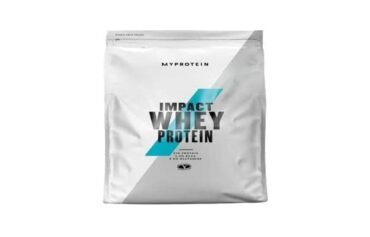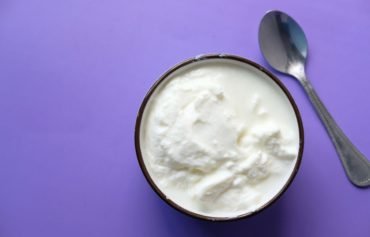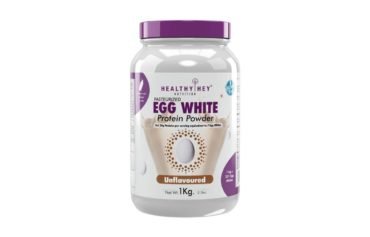Eggs have been a dietary staple for eternity and there’s good reason for their continued presence in our meals. Not only do they offer a delicious variety — hard-boiled eggs, omelets, deviled eggs, and then some — they are also a good source of protein, calcium, and several vitamins and nutrients. In this post we will try to find if Eggs really have carbs and How Many Carbs In Eggs.

Health benefits of eggs
1. It’s a wholesome treat: It is small in size but packs a lot of nutrition and can be important in a well-balanced diet.
One large boiled egg has 77 Calories and also contains:
· 6 grams of protein
· 5 grams of healthy fats
· Vitamins A, B5, B12, D, E, K, B6
· Calcium
· Other minerals (Folate, Phosphorus, Selenium, Zinc)
2.Eggs help to raise good cholesterol: According to one study, eating two eggs a day for six weeks increased HDL levels by 10%.
A quality source of protein. If you are looking for high-quality protein to support your workouts, build muscles, and repair your tissues, eggs would be a great choice. A study also revealed that eggs protein offers greater satiety than other protein sources. In addition, eggs have been shown to trigger hormones that increase the feeling of fullness or satiety. Helping our body’s health: Each egg has 6grams of protein and some essential amino acids. Getting our share of protein for the day can help in weight management, improve muscle mass and lower blood pressure and help our bones, as well.
Get some water-soluble vitamin: Choline
One hard-boiled egg has about 147 mg of choline, which is 27% of the daily value recommended by the U.S. Food and Drug Administration (FDA). It’s used to build cell membranes and helps produce signaling molecules in the brain. These are some of the benefits of eggs described here.
Also Read: The 10 best foods to lower your cholesterol
Do eggs have carbs, how many eggs per day can someone eat on the keto diet? Are eggs keto?
So the answer is YES. Eggs have carbohydrates but 1 large egg (68grams) provides only a trace amount less than 1 gram (0.6gram) of carbohydrates. That isn’t very important.
In the present scenario, a person is very keen to follow diets like- ketogenic, gluten-free, FAD diets, etc.
What is the ketogenic diet?
The ketogenic diet’s increasing popularity is largely due to its potential benefits for weight loss and blood sugar control. A ketogenic diet helps your body enter the metabolic state of ketosis, during which it starts using ketones as a source of energy instead of glucose.
A way of eating that’s high in fat (60%), moderate in protein (30%), and typically limits carbohydrates intake (10%) per day.
This low carbohydrate, high-fat diet may also help treat certain cancers, Alzheimer’s disease, and other health conditions. Still, higher quality research is needed to determine the keto diet’s long-term safety and effectiveness (1Trusted Source, 4Trusted Source, 5, 6Trusted Source, 7Trusted Source, 8Trusted Source).
How many eggs per day can someone eat on the keto diet and How Many Carbs In Eggs?
Eggs are a popular staple dietary food option in the keto diet. They are very healthy too as eggs provide a variety of nutrients including protein, healthy fats, vitamins, and minerals. If you are thinking about incorporating eggs into your low-carb eating plan, you are probably asking how many eggs you can have per day.
You can eat as many eggs as you want and with this as long as you want stay within your nutritional requirements.
You can eat eggs at every meal and you eat them all during the day because they contain good fats and protein and very less amount of carbs. All of these macronutrients are compatible with a ketogenic diet.
However, unless you are a diehard fanatic, spending all day eating only eggs is pretty far from reality.
So assuming a person who needs to consume 1,500 calories a day in a keto diet can meet that requirement with eggs alone, they will need to consume 20 eggs in 24 hours. The question now is not how many eggs you can eat, but how many you are capable of eating.
Recall that the keto diet is 60% fat, 30% protein, and 10% carbohydrates to reach ketosis. For 1,500 calories per day, your macronutrients would look like:
· Fat: 1,500 * 0.6 = 900/9 = 100 grams
· Protein: 1,500 * 0.3 = 450/4 = 113 grams
· Carbohydrates: 1,500 * 0.1 = 150/4 = 38 grams
And in 20 whole eggs, you can get calories from:
· 894 calories from fat
· 504 calories from protein
· 32 calories from carbohydrates
This corresponds to a total of 1,450 calories which matches the full requirement.
A healthy keto diet, on the other hand, should include a range of foods that can suit your nutritional and caloric needs.
Having a variety of healthy and suitable alternatives for each person’s goals is what assures adherence to a dietary plan.
Are eggs Keto?
Yes, Eggs are Keto! With high protein, high fat and low carbohydrates, Eggs are one of the most keto-friendly foods that you can find. Only keto followers who need to avoid egg consumption are allergic to eggs.
Bottom Line
Including eggs in our diet regularly provide multiple health benefits (raising good cholesterol, source of good protein, also helping in weight management, blood pressure, etc.).
Eggs are also a good option for a healthy keto staple. While the calculation shows us that anyone could eat 20 eggs per day on a 1,500-calorie keto diet to meet up their macronutrients, that number is impractical and has adverse consequences. Depending only on eggs would put them at risk for nutritional deficiencies and too many eggs cause digestive upset or bloating.
You can, although, eat several eggs that your body can accept easily without any side effects, like 1-2 large eggs per meal. Then, you meet your remaining macronutrients by consuming other protein- and fat-containing keto foods. Feel free to experiment with various egg recipes out there, and keep on reminding yourself of the ways that eggs boost your health.






